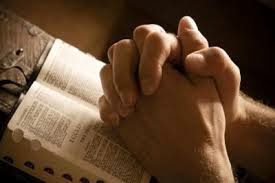"He that hath no rule over his own spirit is like a city...broken down" (Proverbs 25:28)
"He that is slow to anger is better than the mighty; and he that ruleth his spirit than he that taketh a city" (Prov. 16:32).
The Christian experience of salvation does not destroy personality or shrink personal responsibility. The Baptist said, "He must increase, but I must decrease" (John 3:30). But he did not mean that he, himself, was to act less and less like a man and more and more like a thing without a mind or a will. He was talking about the limelight. When Christ comes into the life, the truly converted want Him to be seen. That is what it means for Him to increase. He will increase in visibility in our lives as we more and more learn to be full men. The least gift that Christ can give is salvation. He wants to give us much, much more than a new birth, even a new life.
All human beings should practice self-control. But Christians must do it or pay a terrible price in blessings missed. Self-discipline is essential to godly living. There are probably more failures in God's service for this reason than for any other.
The intelligent self-control possible to the believer is synonymous with a Christ-regulated life or a Spirit-filled life. None of these terms contradicts or rules out the others.
There is no victory possible to us that is as great as victory over our tendency toward undisciplined living.
"Self-government is indeed, the noblest rule on earth; the object of a loftier ambition than the possession of crowns or scepters. The truest conquest is when the soul is bringing every thought into captivity to Christ. The monarch of his own mind is the only real potentate."---Caird
Out of myself into Him I adore,
There to abide in His love evermore;
Through endless ages His glory to see,
My Jesus has lifted me!
---Avis B. Christiansen
(Rev. Roger J. Andrus)




